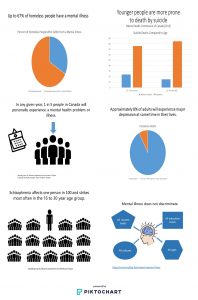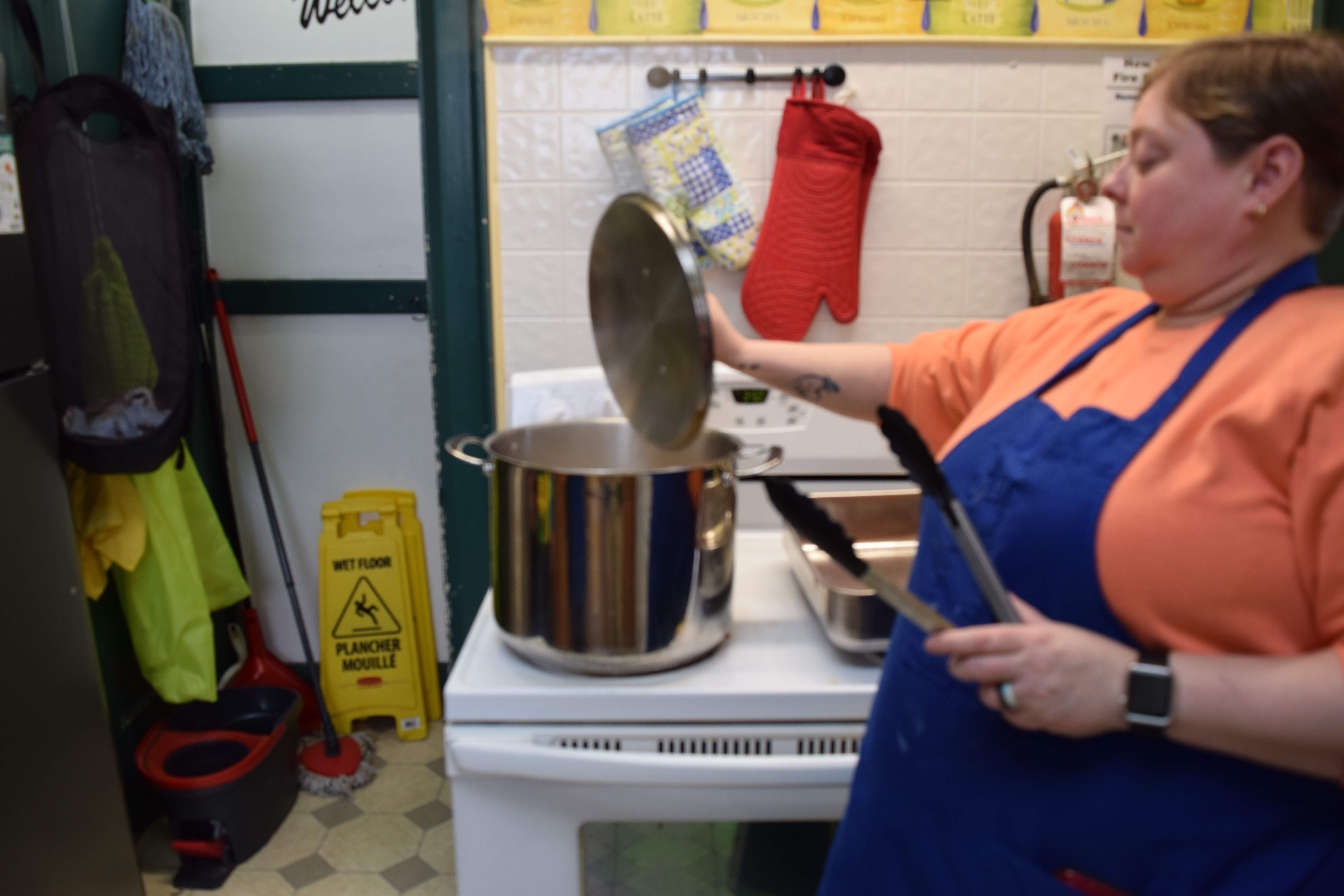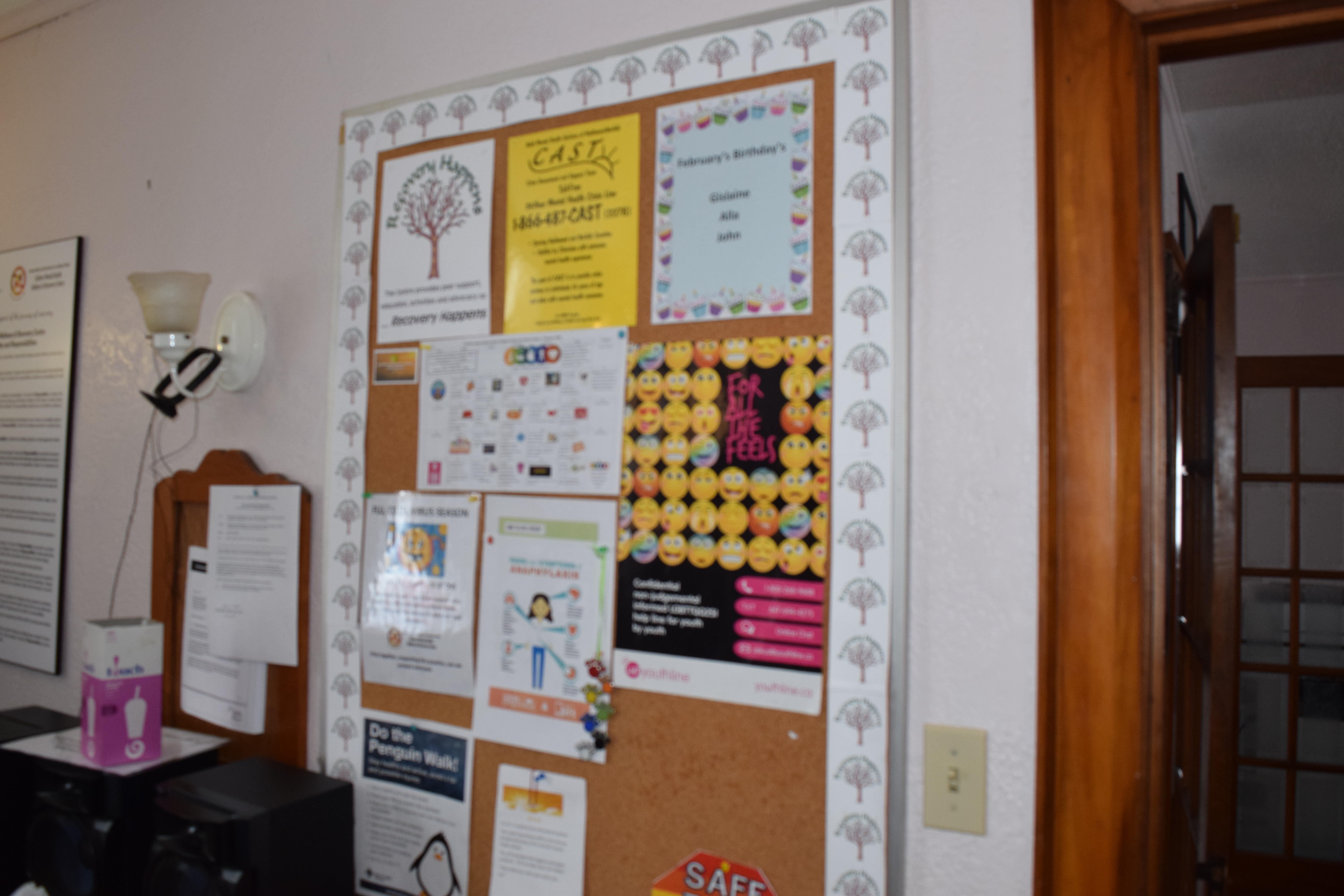ACHIEVE MENTAL HEALTH AND WELLNESS RECOVERY CENTRE IN SIMCOE HELPS SUPPORT STUDENTS.
By Matthew Mills
Pursuing a post-secondary education is challenging for everyone, but it can be especially challenging for people with a mental illness. Susan Roach grew up in the care of the Children’s Aid Society, moving from foster home to foster home until she aged out of the system. “As a person diagnosed with a mental illness, I was told for years by professionals back in the ’80s that I would never be able to attend university,” says Roach. “Lo and behold, all these years later, I have two university degrees and other educational criteria to the point where I was actually teaching at Fanshawe College.” Today, she is the manager of the Achieve Mental Health Wellness and Recovery Centre in Simcoe, Ont. Roach attributes her success in part to her stubborn nature. When others put limits on what she could accomplish, she rejected them. “It would get my ire up,” says Roach. “I would say, ‘Oh, yes, I can. I’m going to prove you wrong.’” And prove them wrong she did.
Roach’s success is a result of her resilience and ability to persevere in the face of adversity, especially as a young student. Not everyone who lives with mental illness has these skills, though. And with increasing numbers of college and university students reporting mental health issues, the need for schools to provide care is more important than ever.
According to the Centre for Addiction and Mental Health, in any given year, one in five Canadians experiences a mental illness or addiction problem. Half of the Canadian population over 40 has or has had a mental illness, and young people 15 to 24 are more likely to experience mental illness than any other age group. Poor mental health leads to other problems in communities such as poverty, unemployment, substance abuse and homelessness. The financial impact of mental illness in Canada is staggering, with the economic burden estimated at $51 billion per year.
Ontario colleges and universities recognize the growing need to support students with mental health issues. In November 2017, the College Student Alliance, the Ontario Undergraduate Student Alliance, Colleges Ontario and the Council of Ontario Universities created an action plan to address the increasing number of students who reported debilitating depression, overwhelming anxiety or had seriously considered suicide.
According to the plan, In It Together, Taking Action on Student Mental Health, providing effective support for mental health challenges is one of the most pressing issues on post-secondary campuses today. The number of students identified with mental health disorders has more than doubled in the past five years. “It is hard to put a specific number to the increase, but we are seeing more students identifying as having mental health concerns,” says Alison Burnett, director of student wellness at Ontario’s University of Guelph. The university offers individual and group counselling. In addition, a drop-in peer support centre is available where trained student volunteers listen and help students solve personal problems. “We have changed our model to better triage students’ needs and determine the best way to help meet that need,” says Burnett.
Peer support is the foundation of Roach’s work at the at Achieve Mental Health Wellness and Recovery Centre. All those who work at the centre have a diagnosed mental illness and are also registered with the Ontario College of Social Workers and Social Service Workers. Trisha Schotsch graduated from Fanshawe College with a social service worker diploma eight years ago and has worked at the centre ever since. “I live with a mental health challenge,” says Schotsch, “so I know the struggles that our members go through day to day.” Lived experience gives the centre staff a unique perspective and an added passion for the work they do. The centre offers a variety of peer support programs, including recreational and social opportunities as well as support and encouragement for secondary and post-secondary students looking to return to school or to continue their education.
Staff at Wilfrid Laurier University have also noticed an increase in the number of students seeking help for mental health issues, according to Sarah Syrett, interim wellness education program field co-ordinator for the Wellness Centre at Laurier’s Brantford campus. In addition to offering on-campus services and care, Laurier partners with services offered in the wider community such as St. Leonard’s Community Services. St. Leonard’s offers a variety of programs that provide individual and group counselling for those dealing with an addiction or a mental health challenge. It also offers immediate support through a crisis telephone hotline and walk-in clinic.
Partnering with community agencies has helped post-secondary institutions meet the needs of the increasing number of students seeking mental health support, but there is still more to do. “We are looking to get more people on staff here,” says Syrett. “We have a mental health nurse and we are always trying to get more hours for those people.” With increasing enrollment and growing numbers of students coming forward with mental health issues, the need for services is increasing. International students who attend Laurier encounter added stress because they lack the support of family and are in unfamiliar surroundings.
In Roach’s work at the at Achieve Mental Health Wellness and Recovery Centre, staff recognize the importance of helping students in a variety of ways, including support for finding funding opportunities and housing as well as providing a network for emotional support. Roach herself recounts how she took an entire college course with a member because transportation and the thought of being in the classroom were barriers for this particular person. “I signed up along with them, and I did this entire course because that was what they had wanted to do,” says Roach. “I think for myself and all the staff who are here, because we have that lived experience, there is more of that understanding and willingness to go that extra mile to help people navigate some of the hurdles and challenges they face.”








